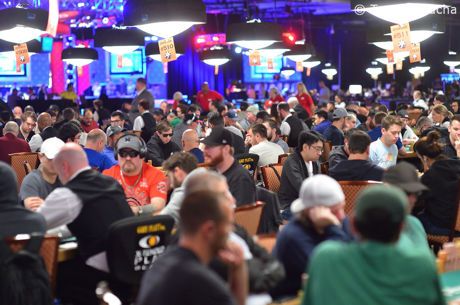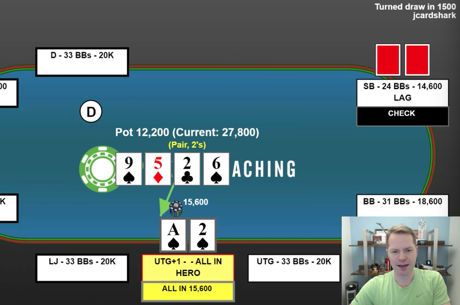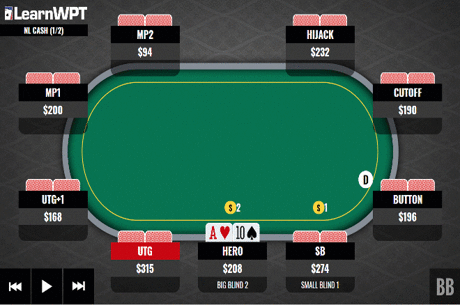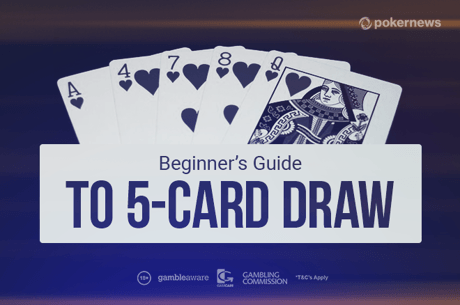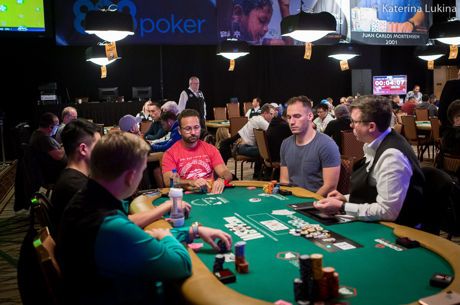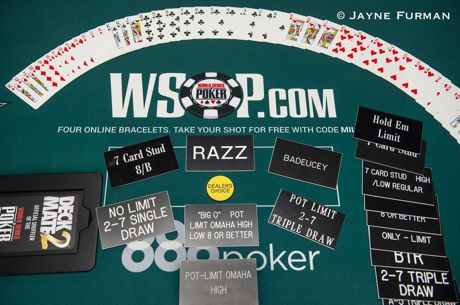Michael "The Grinder" Mizrachi's Mixed Game Tips, Part 2: Razz & 2-7 Triple Draw
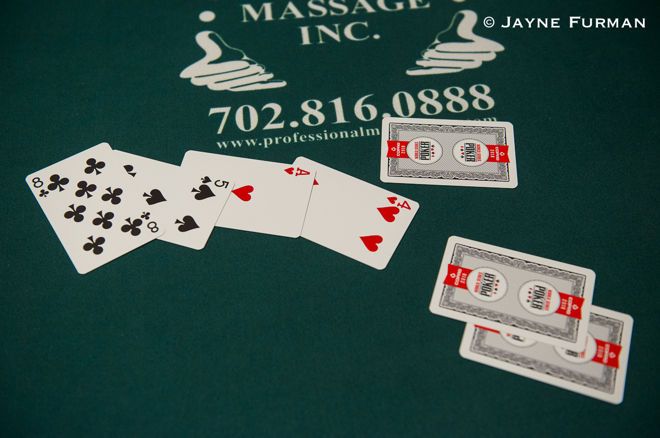
With the $50,000 Poker Players Championship kicking off on Monday, June 24 at the 2019 World Series of Poker, we're talking with three-time PPC champion Michael "The Grinder" Mizrachi about strategy for each of the games played in the event — the traditional "eight-game mix."
The PPC is played six-handed and consists of eight different games in a variety of disciplines: stud (seven-card stud, seven-card stud hi-lo, and razz); Omaha games (pot-limit Omaha, Omaha hi-lo); hold'em (limit and no-limit); and draw (2-7 triple draw).
Last time Mizrachi offered tips for seven-card stud and seven-card stud hi-lo. Today we'll move on to discuss the two "lowball" games — razz and deuce-to-seven triple draw.
PokerNews: Let's talk about the third "stud" game in the mix — razz. What are some common mistakes you see players make in razz?
Michael Mizrachi: I see a lot of times players who have to bring it in with a high card, like a king or queen, call after an opponent with a small up card completes the bet. These players who are forced to bring in the bet with a high card may have two low cards in the hole and decide to call. I would just give it up and wait for a better spot.
What other advice do you have for razz players, especially those who are new to the game?
Overall, I would recommend playing razz A-B-C to begin by starting with three good low cards.
Once again [as in other stud games], you have to be giving your full attention. Watch the board and see what cards are live and dead. If there are two fives out and then another player gets a five, you can be pretty sure that this card helped them (as it didn't pair them). Also, if there are no aces on the board and a player that raised gets an aces, you may want to consider that the player may have an ace in the hole and paired.
As you becoming more experienced with the game, don't be afraid to bluff, especially if you have a very strong board, but end up with trips or two pair.

Let's move over to deuce-to-seven triple draw, another game in which you want to make a low hand, but here the game is a draw variant. What are some mistakes you see amateurs making in 2-7 triple draw?
Players playing too many hands out of position. This game is all about position. If you are in position, since you are last to act, you can see what your opponent is doing, whether they draw or stay pat. Then you can make your decision. This is a huge advantage, especially on the last draw.
Many players draw weak in early position such as a weak 8 or even a 9. These are just trouble hands. In early position, I only play very strong drawing hands, especially drawing to a 7. In late position, you can consider drawing to weaker 8's.
What is some advice that you can teach players for 2-7 lowball limit triple draw?
The general rule is to never play a starting hand without a 2 (you cannot make a 7 hand without a 2). Now playing a starting hand with a deuce may not always be possible, but it is a very good general rule of thumb for players starting out in this game.
Another reason why 2 and 7 together are valuable is that you cannot make a straight. Be careful of hands that can become straight draws and can get you into trouble like 8-7-5.
If you decide to snow [i.e., stand pat with a hand that can't win but you intend to bluff it], make it believable. Don't just stay pat before the first draw. Players will think it is a 9-6 or a weak 8 and maybe call you at the end. I would draw one card on the first draw, and maybe even draw one more card on the second and then stay pat. That looks a lot more believable.
Finally, players who are inexperienced with this game may not realize how big the game plays. Players rarely check on any round of betting and so you can lose chips very quickly if you are losing every hand. Thus, you have to play extremely tight in this game.
Tomorrow we'll cover the other two fixed-limit games in the eight-game mix — limit hold'em and Omaha hi-lo 8 or better.
In this Series
- 1 Michael "The Grinder" Mizrachi's Mixed Game Tips, Part 1: Stud & Stud Hi-Lo
- 2 Michael "The Grinder" Mizrachi's Mixed Game Tips, Part 2: Razz & 2-7 Triple Draw
- 3 Michael "The Grinder" Mizrachi's Mixed Game Tips, Part 3: Limit Hold'em & Omaha Hi-Lo
- 4 Michael "The Grinder" Mizrachi's Mixed Game Tips, Part 4: NLHE & PLO

